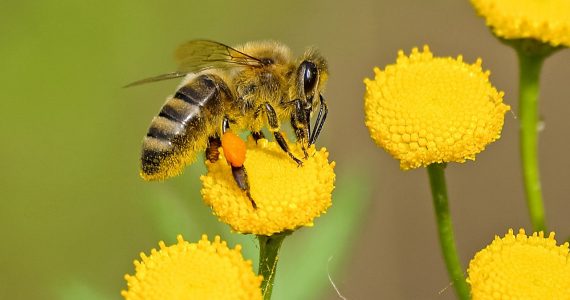Global warming is no joke. With the ice caps melting and carbon emissions on the rise, the oceans are becoming warmer than ever. These high temperatures affect coral reefs by breaking down the symbiotic relationship between corals and the many algae colonies of the deep seas.
When the colorful algae are forced to leave the coral bodies, the reefs turn white and goes through the harmful process named coral bleaching. While some make it through with lucky temperature drops, a larger percentage of these marine organisms die out.

Damsea/Shutterstock: Coral reefs at risk of extinction
The largest such ecosystem in the world, the Great Barrier Reef, has been prone to severe bleaching events many times in the recent past. In 2016, 30 percent of the reef died, and now it has gone through another destructive episode where the harm is yet to be estimated.
However, air surveys have revealed that mass bleaching has occurred in all three reef regions, making it a major threat.
A group of scientists funded by the Great Barrier Reef Foundation has now come up with what seems like the perfect escape plan for this epidemic. They’re confident that lab-reared corals fed with good bacteria might have a better chance of survival during heat-stress periods.

ChameleonsEye/Shutterstock: Saving reefs is essential now more than ever
Probiotics have been used to improve human and animal gut health for years. Much like the theory in probiotics fueled yogurt consumption, the researchers are injecting these healthy bacteria into corals of The Biosphere 2 – the world’s largest artificial ocean in Arizona.
The lab tests in Hawaii are expected to shed light on what microorganism classes are best for each coral type. Slow-release probiotics are also a topic they focus on, due to its sound theoretical probability to help reefs pull through times of predicted heat stress.
The Australian Institute of Marine Science is already growing corals in simulators, while boosting their health with the above method, in hopes to transport them to the Great Barrier Reef in the near future.

Dudarev Mikhail/Shutterstock: Reefs are important for healthy marine life
Considering how despite its negligible area of ocean cover, reefs hold one-fourth of the marine life, saving them is of utmost importance.
In addition to hosting the most abundant biodiversity in any global ecosystem, reefs help protect the land from flooding as well as being the sustenance of the tourism and fishing industries. Most tourists would agree that there really isn’t any other feeling comparable to seeing the vibrant colors of corals and shoals of fish around them when snorkeling.
With hotter summers, bleaching would only increase. So, these probiotics may be our only secret weapon to counter this! You can join efforts to save the reefs here.




